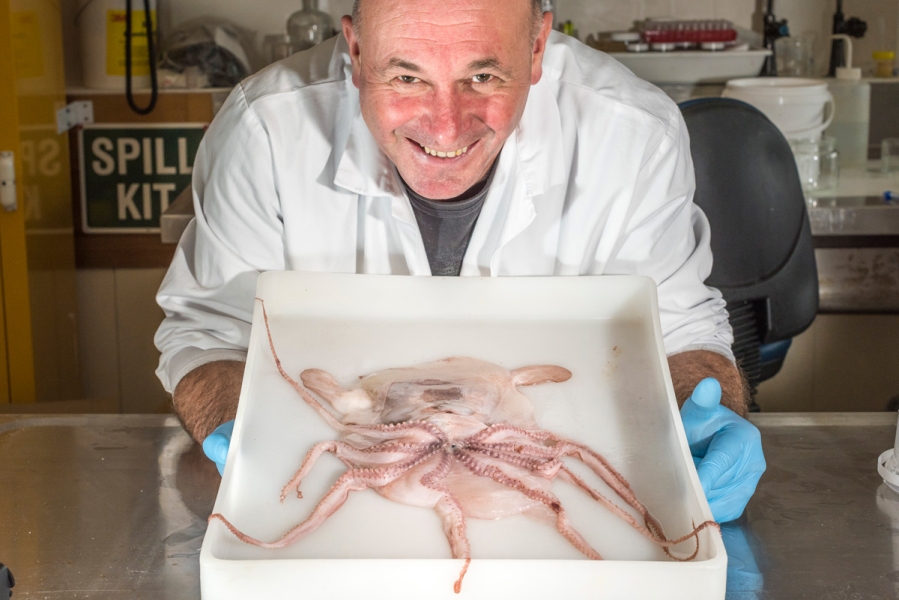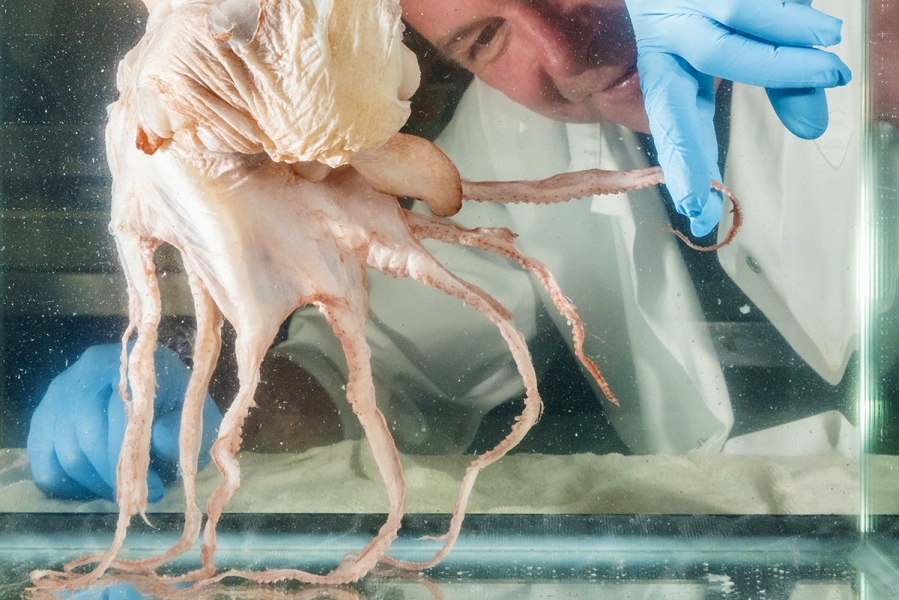NIWA’s Marine Invertebrate Collection has welcomed two extremely rare octopus that have only just been provisionally identified.
They are affectionately known as “dumbo octopus” after the Walt Disney character Dumbo the Elephant. That’s because they have two prominent, floppy appendages which look like ears but are in fact fins. The octopus were collected by independent observers on a recent commercial fishing expedition to the Challenger Plateau, west of New Zealand and delivered to NIWA’s Greta Point campus in Wellington on Friday.
Fisheries researcher Mark Fenwick undertook the delicate process of defrosting the frozen specimens and preparing them for preservation.
“These are adult specimens that have not often been seen in New Zealand waters before, and considered to be very rare,” Mr Fenwick said.
“We need to take extreme care to ensure we don’t damage them.”
The two specimens have been provisionally identified as Luteuthis dentata and Cirrothauma magna with only four specimens of the latter species having previously been documented from New Zealand waters between 1500–2700 m deep.
Dumbo octopus have been recorded from depths of 100 m to over 3000 m in New Zealand waters, although the Grimpoteuthis spp., which is known to be the deepest living of all octopus, can live up to 7000m deep. They eat crustaceans, bivalves and worms that live on the bottom of the seafloor and are among the rarest of the species of octopus. The Luteuthis and Cirrothauma specimens will be kept at the NIWA Invertebrate Collection which comprises about 300,000 specimens for scientific study and is a nationally significant resource that aims to add to our knowledge of what makes up New Zealand’s vast marine realm.
Collection manager Sadie Mills said formal identification would be confirmed in future by Mark and a team of domestic and international researchers including Dr Peter Ritchie in Wellington, Drs María Cecilia Pardo Gandarillas and Christian Ibáñez from Chile, and Dr Kathrin Bolstad and Heather Braid from in Auckland, by comparing genetic sequences with other octopod species collected in the region.
“We are very excited to receive these specimens—they will be available for national and international researchers to help enhance our understanding of octopod diversity in New Zealand.”



